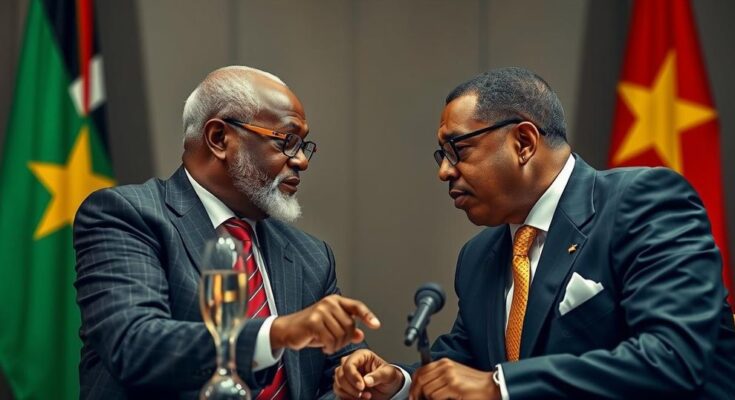In an interview, Ukrainian President Zelensky stated that granting NATO membership to Ukraine’s controlled territories could help end the conflict with Russia. He emphasized that such an invitation must encompass all Ukrainian territories to avoid legitimizing Russian claims. The comments highlight the complexities facing Ukraine’s NATO accession amid ongoing military challenges and evolving international support dynamics.
In a recent interview, President Volodymyr Zelensky of Ukraine stated that a NATO membership offer for territories currently under Ukrainian control could effectively terminate the ongoing conflict with Russia. This notion requires however an extension of membership invitation to all regions comprising internationally recognized Ukrainian borders to avoid legitimizing Russian claims. Zelensky emphasized that entries into NATO must not differentiate between Ukrainian territories and must not acknowledge the occupation by Russia, as this stands against Ukrainian constitutional law.
Zelensky’s comments underline the complexities surrounding Ukraine’s path toward NATO membership, which has been endorsed as an irreversible goal by NATO’s 32 member states during their summit in Washington. However, to proceed, it is essential to have clearly delineated borders to establish a precise defense obligation should Ukraine join the alliance. This complexity stems from the ongoing war with Russia, which has resulted in significant territorial control shifts, particularly in eastern and southern Ukraine.
The president articulated, “You cannot give an invitation to just one part of a country,” highlighting the implications of acknowledging Russian-occupied land. Throughout the conflict, Russia has incurred heavy military losses in efforts to expand its control over Ukrainian territory. Zelensky asserts that a swift NATO inclusion of Ukrainian territories under its control could potentially lead to diplomatic negotiations for regaining the occupied regions.
The urgency of this proposition coincides with NATO’s intention for continued support spanning military aid and strategies to conclude hostilities, as acknowledged by the newly appointed Secretary General, Mark Rutte. However, any accession decisions regarding Ukraine’s NATO membership will necessitate consensus from all member nations, further complicated by the evolving foreign policy landscape following the election of Donald Trump as the U.S. President. Opposition voices within U.S. politics regarding Ukraine’s position pose additional challenges for Zelensky’s administration.
On the military front, Zelensky’s confidence is underscored by recent updates indicating Russian advancements along strategic locations in eastern Ukraine. In response, leadership changes within the Ukrainian military were announced, with General Mykhailo Drapatyi appointed as the new head of Ground Forces to enhance operational effectiveness. These measures reflect both the need for increased military resilience and adaptive strategies to navigate the escalating conflict with Russia effectively.
The ongoing conflict between Ukraine and Russia, which escalated in 2022, has led to significant changes in territorial control and military dynamics in the region. Ukraine is vetting its pathway toward NATO membership while contending with Russian military aggression and occupation of parts of its territory. This complexity is compounded by the need for clear boundaries that align with NATO’s mutual defense commitments, making the situation intricate both legally and politically. Global responses, particularly from NATO, have evolved in an effort to address the security challenges posed by Russian actions, reinforcing their support for Ukraine in these trying times.
In summary, President Zelensky’s assertion reflects the intricate relationship between precise territorial recognition and NATO membership negotiations. The ongoing war necessitates strategic enhancements in Ukraine’s defense, making NATO’s support even more vital. The evolving geopolitical landscape and internal political dynamics within the U.S. additionally complicate Ukraine’s situation as it seeks to establish sovereignty and achieve long-term peace through international alliances.
Original Source: www.arabnews.com




